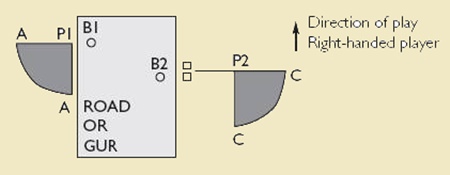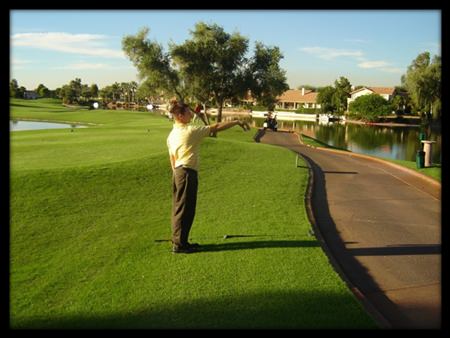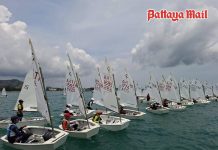This week’s article is part of an on-going series on the Rules of Golf. They will vary from the obvious to the not so obvious, and feature golfing holes around Pattaya that regularly cause problems. If you have any local golf holes you would like reviewed, simply pose the question in the online comments section and we will endeavour to provide the answer.
How many golf courses around Pattaya contain obstructions or abnormal ground conditions that can lead to a free drop? It would be simpler to reverse the question by asking how many don’t? I suspect there aren’t any. This makes sense given that most courses have been set up as resort or tourist destinations. The chances therefore of a golfer taking relief, under Rule 24 – Obstructions, or Rule 25 – Abnormal Ground conditions, are very high.

Please note that phrases, when italicised, indicate a term as defined under definitions contained within the Rules of Golf.
Let’s take the common occurrence of a ball coming to rest on a cart path. This comes under 25-1 Abnormal Ground Conditions where relief may be taken as follows:
(i) “Through the Green: If the ball lies through the green, the player must lift the ball and drop it, without penalty, within one club-length of and not nearer the hole than the nearest point of relief. The nearest point of relief must not be in a hazard or on a putting green. When the ball is dropped within one club-length of the nearest point of relief, the ball must first strike a part of the course at a spot that avoids interference by the condition and is not in a hazard and not on a putting green.”
The critical point here, and one that many golfers, experienced amateurs and professionals alike get wrong, is using the correct club when determining the nearest point of relief.
Defining the ‘nearest point of relief’
The above diagram illustrates the term nearest point of relief in relation to Rules 24-2 and 25-1. The diagram instances the case of a right-handed player.
 Nearest Point of Relief – is he right?
Nearest Point of Relief – is he right?
The nearest point of relief is the reference point for taking relief without penalty from interference by an immovable obstruction (Rule 24-2), an abnormal ground condition (Rule 25-1) or a wrong putting green (Rule 25-3).
- B1 = position of ball on road, in ground under repair (GUR), etc.
- P1 = nearest point of relief.
- P1-A shaded area = area within which ball to be dropped, radius of one club-length from P1, measured with any club.
- B2 = position of ball on road, in ground under repair (GUR), etc.
- Two small squares = position of notional stance required to play ball at P2.
- P2 = nearest point of relief.
- P2-C shaded area = area within which ball to be dropped, radius of one club-length from P2, measured with any club.
What club is used to determine P2?
The Rules of Golf, under Definitions, page 29, actually state the nearest point of relief as; “The point on the course nearest to where the ball lies:
(i) that is not nearer the hole, and
(ii) where, if the ball were so positioned, no interference by the condition from which relief is sought would exist for the stroke the player would have made from the original position if the condition were not there.
Note: In order to determine the nearest point of relief accurately, the player should use the club with which he would have made his next stroke if the condition were not there to simulate the address position, direction of play and swing for such a stroke.”
Therefore the distance between the notional stance and P2, above, is determined by the length of the club that would have been used for the shot had the road or GUR not existed. Having established P2, any club may then be used to determine the one-club radius drop area.
How often do we see players use their driver to establish the equivalent of P2, shown in the diagram, when they are but a short iron from the green?
Next time you see a player faced with a drop off GUR, or similar situation such as P2, give him the heads-up on how to establish his nearest point of relief. Hopefully, he/she will thank you for it.
Happy golfing,
Golfnutter




